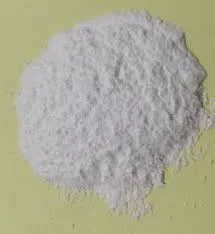- Afrikaans
- Albanian
- Amharic
- Arabic
- Armenian
- Azerbaijani
- Basque
- Belarusian
- Bengali
- Bosnian
- Bulgarian
- Catalan
- Cebuano
- Corsican
- Croatian
- Czech
- Danish
- Dutch
- English
- Esperanto
- Estonian
- Finnish
- French
- Frisian
- Galician
- Georgian
- German
- Greek
- Gujarati
- Haitian Creole
- hausa
- hawaiian
- Hebrew
- Hindi
- Miao
- Hungarian
- Icelandic
- igbo
- Indonesian
- irish
- Italian
- Japanese
- Javanese
- Kannada
- kazakh
- Khmer
- Rwandese
- Korean
- Kurdish
- Kyrgyz
- Lao
- Latin
- Latvian
- Lithuanian
- Luxembourgish
- Macedonian
- Malgashi
- Malay
- Malayalam
- Maltese
- Maori
- Marathi
- Mongolian
- Myanmar
- Nepali
- Norwegian
- Norwegian
- Occitan
- Pashto
- Persian
- Polish
- Portuguese
- Punjabi
- Romanian
- Russian
- Samoan
- Scottish Gaelic
- Serbian
- Sesotho
- Shona
- Sindhi
- Sinhala
- Slovak
- Slovenian
- Somali
- Spanish
- Sundanese
- Swahili
- Swedish
- Tagalog
- Tajik
- Tamil
- Tatar
- Telugu
- Thai
- Turkish
- Turkmen
- Ukrainian
- Urdu
- Uighur
- Uzbek
- Vietnamese
- Welsh
- Bantu
- Yiddish
- Yoruba
- Zulu
Nov . 09, 2024 05:31 Back to list
Ivermectin Injection Use for Swine Health and Parasite Management
Ivermectin Injection for Pigs An Overview
Ivermectin is a broad-spectrum antiparasitic agent that has gained prominence in veterinary medicine, particularly in the management of parasite infestations in livestock. Among its numerous applications, ivermectin injection for pigs has emerged as an effective tool for controlling parasitic infections, which can significantly impact the health, growth, and overall productivity of swine. This article aims to provide an overview of ivermectin, its usage, benefits, and important considerations when administering the injection to pigs.
Understanding Ivermectin
Ivermectin belongs to a class of drugs known as macrocyclic lactones, which are derived from the fermentation products of the bacterium Streptomyces avermitilis. It works by disrupting the nervous system and muscle function of parasites. Specifically, ivermectin binds to specific chloride channels in their cells, leading to paralysis and death of the parasites. This mechanism makes ivermectin effective against a variety of internal and external parasites, including roundworms, lungworms, lice, and mites, which commonly afflict pigs.
Benefits of Ivermectin Injection for Pigs
1. Effective Parasite Control The primary benefit of using ivermectin in pigs is its efficacy in controlling a broad spectrum of parasites. This effectiveness not only alleviates the immediate health concerns associated with infestations but also contributes to the long-term well-being of the herd.
2. Improved Growth Rates Parasite infestations can adversely affect the growth and weight gain of pigs. By eliminating these parasites, ivermectin helps improve feed conversion rates, resulting in healthier and more productive animals.
3. Ease of Administration Ivermectin is commonly administered via injection, which can be less stressful for animals compared to oral treatments, especially in larger herds. The injectable form also ensures precise dosing, reducing the chance of underdosing or overdosing.
4. Proven Safety Profile Ivermectin has a well-established safety profile when used according to veterinary guidelines. Its low toxicity in pigs makes it a favorable choice among veterinarians and livestock producers.
Recommended Dosage and Administration
ivermectin injection for pigs

When using ivermectin injection for pigs, it is crucial to follow the recommended dosage guidelines to ensure efficacy while minimizing the risk of side effects. The typical dosage for pigs is 200 micrograms per kilogram of body weight. This dosage may vary based on specific circumstances, such as the type of parasites and the severity of the infestation.
Before administering the injection, it's important to ensure that the pigs are healthy and free from conditions that could complicate treatment. The injection should be given under the skin (subcutaneously) or into the muscle (intramuscularly), depending on the product being used. Additionally, it’s essential to use sterile techniques to prevent infections at the injection site.
Important Considerations
While ivermectin is a valuable tool for parasite control in pigs, there are several important considerations to keep in mind
1. Veterinary Consultation Always consult with a veterinarian before administering ivermectin or any other medication. A veterinarian can provide guidance on the appropriate treatment plan based on the specific health needs of the herd.
2. Withdrawal Period Ivermectin has a withdrawal period, which is the time that must pass before animals can be slaughtered for meat consumption or their milk is used for human consumption. Adhering to these guidelines is critical to ensuring food safety and complying with regulatory standards.
3. Resistance Management Over-reliance on ivermectin for parasite control can lead to the development of resistance among parasite populations. To mitigate this risk, rotation with other antiparasitic drugs and implementing integrated parasite management strategies are recommended.
4. Monitoring and Assessment Following treatment, ongoing monitoring of the herd is important to assess the effectiveness of the intervention and to identify any signs of re-infestation.
Conclusion
In conclusion, ivermectin injection for pigs is a powerful means of promoting animal health and productivity by effectively managing parasitic infections. When used responsibly and under the guidance of a veterinarian, it can lead to improved growth rates and overall herd health. However, careful management practices, including monitoring for resistance and adherence to withdrawal times, are essential to maximize the benefits of this invaluable veterinary tool. By adopting a proactive approach, swine producers can ensure the welfare of their animals and the success of their operations.
-
Guide to Oxytetracycline Injection
NewsMar.27,2025
-
Guide to Colistin Sulphate
NewsMar.27,2025
-
Gentamicin Sulfate: Uses, Price, And Key Information
NewsMar.27,2025
-
Enrofloxacin Injection: Uses, Price, And Supplier Information
NewsMar.27,2025
-
Dexamethasone Sodium Phosphate Injection: Uses, Price, And Key Information
NewsMar.27,2025
-
Albendazole Tablet: Uses, Dosage, Cost, And Key Information
NewsMar.27,2025













